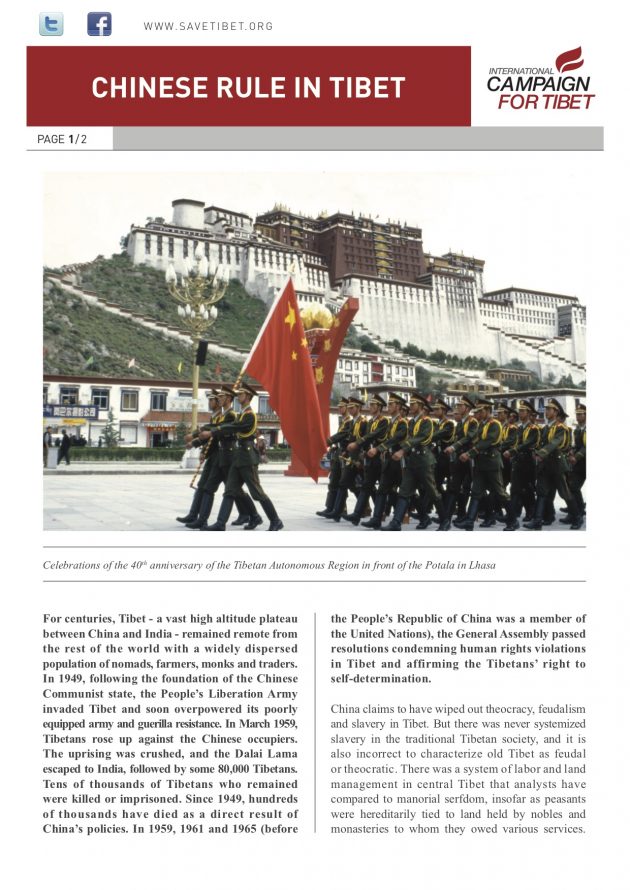
For centuries, Tibet – a vast high altitude plateau between China and India – remained remote from the rest of the world with a widely dispersed population of nomads, farmers, monks and traders. In 1949, following the foundation of the Chinese Communist state, the People’s Liberation Army invaded Tibet and soon overpowered its poorly equipped army and guerilla resistance. In March 1959, Tibetans rose up against the Chinese occupiers. The uprising was crushed, and the Dalai Lama escaped to India, followed by some 80,000 Tibetans. Tens of thousands of Tibetans who remained were killed or imprisoned. Since 1949, hundreds of thousands have died as a direct result of China’s policies. In 1959, 1961 and 1965 (before the People’s Republic of China was a member of the United Nations), the General Assembly passed resolutions condemning human rights violations in Tibet and affirming the Tibetans’ right to self-determination.